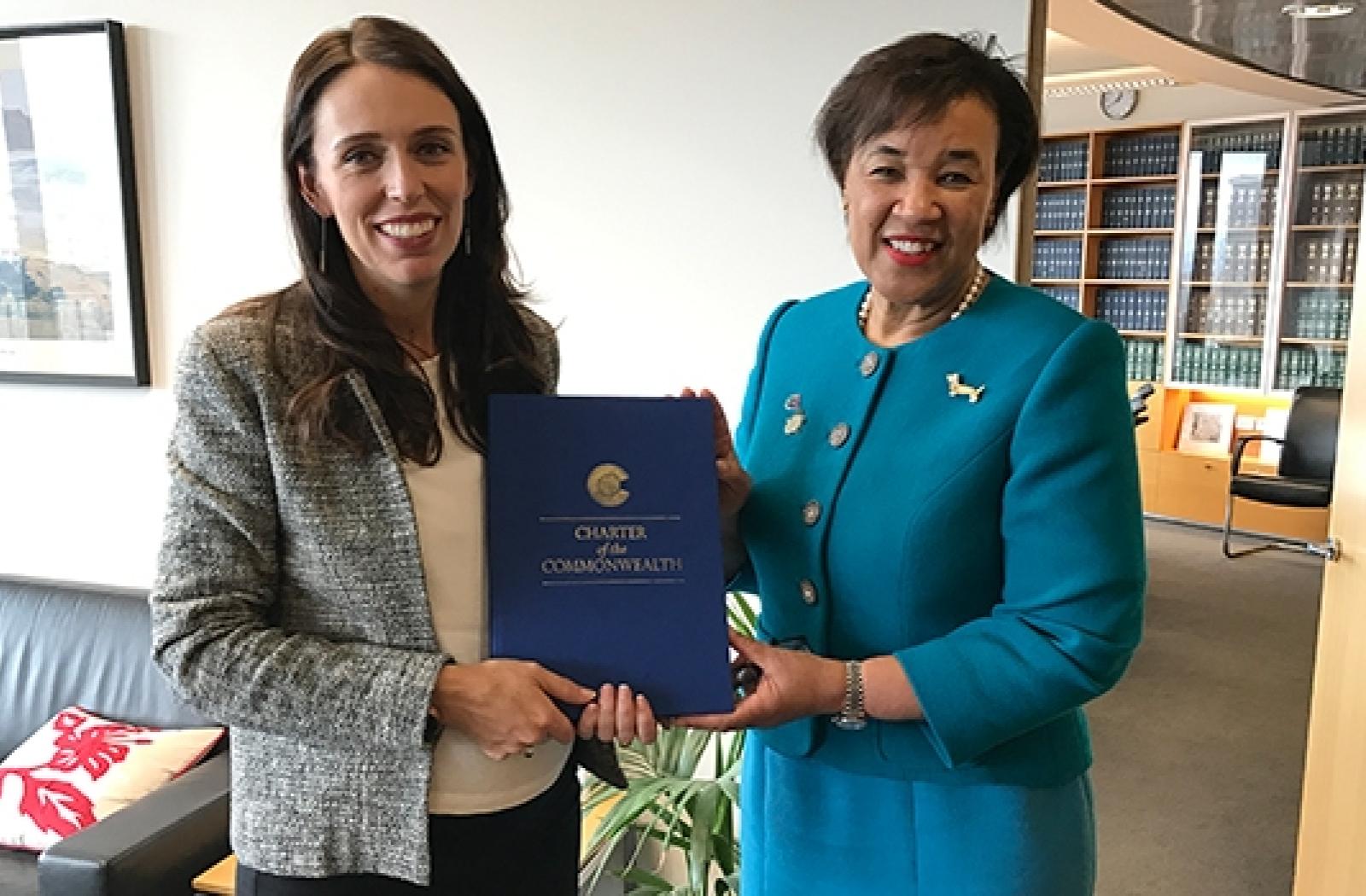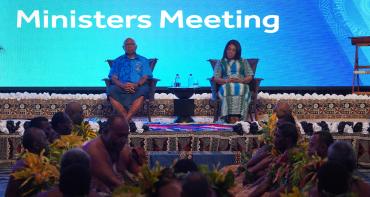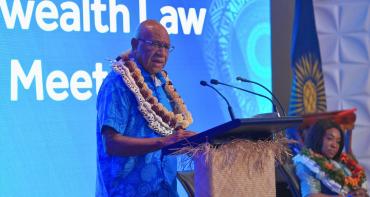A key indicator of progress towards the UN’s sustainable development goal five: Gender Equality measures the number of women in leadership. In the lead up to the 2030 deadline for this target, we must see those numbers surge in the political sphere.

This blog is the second in the Commonwealth’s ‘16 Days of Actions’ series, designed to showcase multi-disciplinary national solutions in addressing violence against women and girls. These proven solutions build on the collective experience of the 54 member countries – representing one-third of humanity – which can be replicated elsewhere to create a safer world for every woman and girl. Read the full series here.
Imagine a world where women make up an equal proportion of leadership positions as men. Where there is greater opportunity for – and no violence against – women and girls.
A key indicator of progress towards the UN’s sustainable development goal five: Gender Equality, measures the number of women in leadership. In the lead up to the 2030 deadline for this target, we must see those numbers surge in the political sphere.
Of course, women’s leadership stretches beyond political representation and participation and covers all sectors from business to academia and not-for-profits.
In 2017, the Royal Bank of Scotland estimated that women led businesses contributed £3.51 billion to the UK economy, and created 77,000 jobs in 2015. A similar study by the The 2020 Times Higher Education Supplement finds that 19 per cent of the world’s top 200 universities were led by women, up from 17 per cent two years earlier.
Despite these critical gains, greater participation of women in politics remain a key goal.
Women in political leadership
As of 2020, across the Commonwealth, around one in five members, or 21 per cent, of a national legislature was a woman, a figure close to the global average of 25 per cent. But this statistic does not fully demonstrate the diversity that characterises the Commonwealth.
Rwanda has the most women members of parliament of any legislature in the world, with 61.3 per cent in the Chamber of Deputies. In total, in the parliaments of 14 Commonwealth countries, 30 per cent or more of members are women.
However, 25 countries have fewer than 15 per cent women members of parliament. This underlines a clear need for our member countries to do more work to meet their collective goal of ensuring at least 30 per cent of elected political offices are held by women.
It is heartening to see that across the Commonwealth, many cross-party women’s caucuses have brought women parliamentarians together to push for legislative reforms.
Promoting women
In Pakistan, an initiative to promote women in parliament led to the introduction of the Women’s Political Caucus in 2008, which has addressed political exclusion, brought gender issues to the centre of public policy and initiated debates on the impact of conflicts on women.
Similarly, in Rwanda, since the Forum of Rwanda Women Parliamentarians was launched in 1996,
In Kenya, the Kenya Women Parliamentary Association has an impressive list of achievements to showcase, which include its contributions towards the realisation of the Family Bills: The Marriage Act 2014, the Matrimonial Property Act 2013, and the Protection Against Domestic Violence Act.
While these are just a few examples of contributions of female parliamentarians, they occur in a challenging context for aspiring women leaders.
Today, women around the world are better educated and more active in the labour force than ever before. They make up greater numbers in managerial and leadership roles. Yet the proportion of women at the very top of business or politics remains low.
Gender responsive policies
While it is a mistake to assume women members of parliament should naturally be responsible for gender issues in politics, it has often been women parliamentarians who have driven the gender equality agenda forward.
In total, 14 Commonwealth countries have convened women’s parliamentary caucuses, covering legislative issues, which include:
- ensuring gender equality across the electoral process, political party governance and parliamentary committees;
- providing women access to water, reproductive health services, childcare and quality education;
- lifting women out of poverty and economically empowering widows and those living in rural and migrant settings; and
- eliminating violence against women and girls.
Women’s parliamentary caucuses may not be a silver bullet for gender equality. But they show what can be achieved when women are given equal opportunities to men.
Together, these leaders are creating a world where every woman and girl does not just feel safe enough to survive but they are empowered enough to thrive.
The ‘16 Days of Actions’ blog series is part of the Commonwealth Says NO MORE campaign. Read the full series here, learn more about the Commonwealth’s work on ending violence against women and girls here – and join in the conversation on social media by using #CommonwealthSaysNOMORE.



